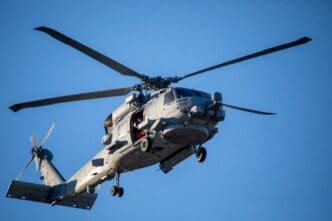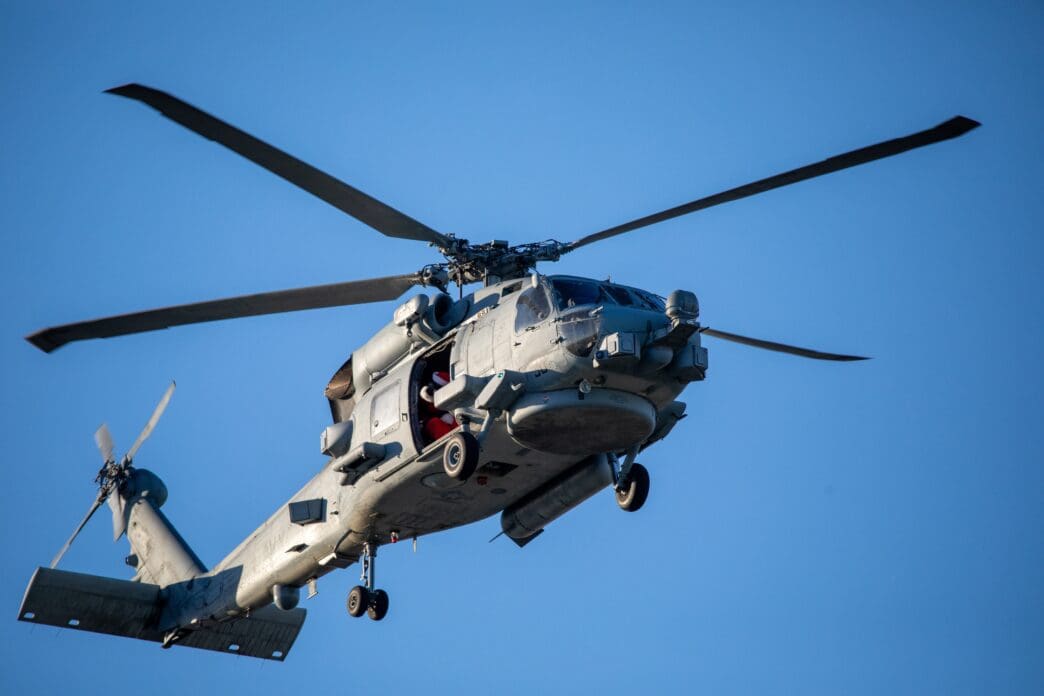Executive Summary
- The US military is currently detaining two individuals on a Navy ship following a strike on an alleged drug boat in the Caribbean, marking the first such operation to result in survivors being held.
- The legal authority under which the US Navy is holding these individuals remains unclear, raising significant questions about the Trump administration’s assertion of broad Article II powers for strikes against “narco-terrorists” without congressional authorization.
- President Trump commented on the operation, stating US forces “attacked a submarine” carrying drugs and emphasizing the group was “not an innocent group of people,” without directly addressing the status or legal basis of the detainees.
The Story So Far
- The US military’s current detention of individuals follows the Trump administration’s assertion of broad Article II constitutional authorities to conduct strikes against “narco-terrorists,” a legal theory that is questioned by lawmakers and lacks specific congressional authorization for military conflict against drug traffickers. This approach revives a long-standing legal ambiguity, as a similar Article II theory for military detention advanced by the Bush administration was never definitively ruled upon by the Supreme Court, leaving the legal basis for such operations contested.
Why This Matters
- The detention of individuals on a Navy ship following a drug boat strike, the first such operation resulting in survivors being held, raises significant legal questions regarding the US military’s authority, as the Trump administration asserts broad Article II powers without clear congressional authorization. This ambiguity could lead to legal challenges from the detainees, potentially forcing the administration to clarify its controversial legal rationale for these operations and setting a precedent for future military involvement in drug interdiction.
Who Thinks What?
- President Trump and the US military assert broad authorities, based on Article II of the Constitution, to conduct strikes against and detain individuals identified as “narco-terrorists,” stating those targeted are “not an innocent group of people.”
- Legal experts, such as Brian Finucane, question the legal basis for the US Navy’s detention of the individuals, highlighting the ambiguity surrounding the authority and noting that the Supreme Court has not definitively ruled on similar Article II theories for military detention.
- Lawmakers across the political spectrum question the Trump administration’s assertion of broad Article II authorities, emphasizing that Congress, which holds the power to declare war, has not authorized an armed conflict against drug traffickers.
The US military is currently detaining two individuals on a Navy ship following a strike on Thursday against an alleged drug boat in the Caribbean, according to three US officials. This incident marks the sixth known strike on a vessel suspected of drug trafficking by the US, but it is reportedly the first such operation to result in survivors being held. The legal authority under which the US Navy is holding these individuals remains unclear.
Strike Details and Administration Response
The strike, which has not been publicly acknowledged by the Trump administration, targeted a vessel described as an “alleged drug boat.” US Southern Command, responsible for military operations in the region, referred inquiries about the incident to the White House.
During a White House event on Friday, President Donald Trump commented on the operation, stating that US forces had “attacked a submarine, and that was a drug carrying submarine built specifically for the transportation of massive amounts of drugs.” He emphasized, “Just so you understand this was not an innocent group of people,” without directly addressing the status of the detainees.
Legal Questions Surrounding Detention
The detention of these individuals raises significant legal questions regarding the US military’s authority. Brian Finucane, a former State Department lawyer specializing in war powers issues, noted the ambiguity surrounding the legal basis for holding the men.
The Trump administration has asserted broad authorities under Article II of the Constitution to conduct strikes against what it identifies as “narco-terrorists,” a theory questioned by lawmakers across the political spectrum. Congress, which holds the authority under Article I to declare war, has not authorized an armed conflict against drug traffickers.
Finucane highlighted that while the Bush administration previously advanced a similar Article II theory for military detention, the Supreme Court never definitively ruled on its lawfulness. The Bush administration eventually relied on a 2001 congressional authorization for the use of military force against al Qaeda and its affiliates to hold detainees.
Potential Legal Challenges
The men currently held by the US Navy could potentially petition the courts to challenge the legality of their detention through a habeas corpus claim. Such a legal pathway, previously pursued by other detainees, could potentially reveal more information about the Trump administration’s legal rationale for these secretive operations.








